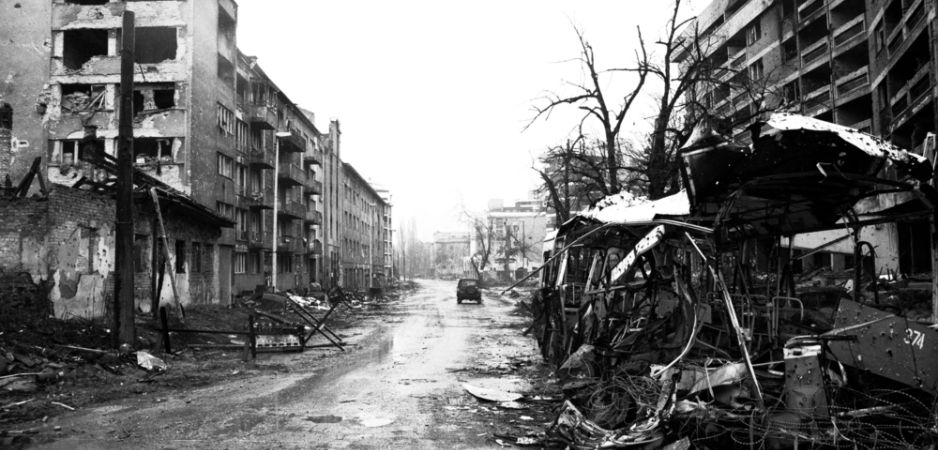An upcoming referendum threatens the unity of the Dayton Accords on the 20th anniversary.
Dayton was “a superb agreement to end a war but a very bad agreement to make a state.” This is how former High Representative to Bosnia Paddy Ashdown described the Dayton Accords that brought peace to Bosnia in 1995.
It is a sentiment with which many would agree and a situation that Milorad Dodik, president of Republika Srpska (RS) and Dayton’s biggest critic, is seeking to change through a referendum. This threatens to set RS and the West on a collision course, with Russia, as ever, lurking in the background, looking to pick up the pieces and ruffle more feathers on the borders of the European Union.
The 1991 breakup of Yugoslavia resulted in Europe’s worst conflict since World War II in Bosnia and Herzegovina due to the competing territorial claims of its Orthodox Christian Serb, Muslim Bosniak and Catholic Croat populations. Serbian atrocities in Srebrenica and Markale, which precipitated the joint United Nations-NATO intervention, brought the opposing sides to the negotiation table after some 100,000 lives had been lost and 2.2 million people displaced.
A conference center in Dayton, Ohio, was chosen by negotiators as a suitably innocuous location in which to hold the peace talks. So dazzling was the complexity of the resulting agreement, however, that it is difficult to say whether it was a masterstroke of diplomacy or an exercise in sheer folly.
A helpful way of looking at the Dayton Agreement is to imagine a patient who has suffered severe body trauma lying in a hospital bed. This patient needs to be held in traction with the aid of an elaborate system of support and girdles in such a way that it keeps the broken body in a unified state, but without any of their limbs actually touching each other.
Striving for Autonomy
Such is the state of Bosnia and Herzegovina as prescribed by the Dayton Accords. The country is divided into two entities: the Serb-dominated Republika Srpska, and the Federation of Bosnia and Herzegovina, which has a Bosniak and Croat majority. Serving as something of a buffer zone between these two is the self-governing administrative unit of Brčko.
Each entity has its own court system, including a supreme court, but overlaid on top of this is a national supreme court—a super-supreme court if you will—called the Court of Bosnia and Herzegovina, which has jurisdiction over both RS and the Federation of Bosnia and Herzegovina. There is also the Prosecutor’s Office of Bosnia and Herzegovina, which is charged with prosecuting war crimes going back to the Bosnian War.
It is the supremacy of the court and the Prosecutor’s Office over the courts of Republika Srpska that Dodik wants to put before a referendum slated for November 15. On the day, Bosnian Serbs will be asked to vote on whether they support the “anti-constitutional and unauthorized laws imposed by the High Representative of the international community, especially the laws imposed relating to the Court and the Prosecutor’s office of Bosnia and Herzegovina.” A no vote in November would add a veil of democratic legitimacy to Dodik’s desire to free RS from the oversight of the court, which he accuses of trammeling on the jurisdiction of RS’ courts, and the Prosecutor’s Office, which he claims disproportionately targets Serbs in its war crime investigations while letting Bosniak and Croat offenders off lightly.
More broadly, the referendum is in keeping with Dodik’s mission to break—or loosen, as much as possible—the ties that bind RS to the Bosnian state. Such a rupture, however, would be in violation of the Dayton Agreement due to the precarious position this would leave the Bosniak and Croat minorities in an independent, Serb-dominated state.
On previous occasions in 2008 and 2011, Dodik has proposed holding referendums on the legitimacy of the national court, only to bow to pressure from Brussels to take it off the table or risk having it annulled by the Peace Implementation Council (PIC)—an international body tasked with overseeing the implementation of the Dayton agreement. The PIC, composed of representatives from 55 countries and agencies, and headed by the high representative for Bosnia and Herzegovina, has the power to strike down legislation deemed to contravene Dayton, and it can even remove the heads of office if they threaten the terms of the agreement.
A Subtle Message
However, this time around, Dodik and his vice president, Emil Vlajki, are talking tough. Adamant that the referendum will go ahead, they seem intent on testing the resolve of the PIC to follow through on its threats to annul the vote.
What has emboldened Dodik to stand up to the PIC and risk his political future?
It seems he has spied an opportunity to make RS a willing pawn in the power play between the West and Russia that has broken out since last time he threatened a referendum. Seeing how Moscow has capitalized on disunity in the West to annex Crimea and stoke separatism in eastern Ukraine, Dodik and his supporters have found just the kind of ally they need in the form of newly belligerent Moscow.
Indeed, on the very same day the referendum was held in Crimea and resulted in its annexation, Russian Foreign Minister Sergei Lavrov met with Dodik in Bosnia, sending a strong, yet subtle, message that Russia will stand behind the Serbian republic’s cause just as fully as it has that of separatist Ukraine.
For RS, Russia may be seen as the big brother coming to save their orthodox religious kinfolk from Western bullying, whereas for Moscow, Bosnia may be just another theater in which to tie down Western diplomatic resources.
But be that as it may, both sides get what they want from the relationship: Dodik the support he needs in his efforts to undermine Dayton, and Russian President Vladimir Putin another bargaining chip in his stand-off with the West. Perhaps nothing as significant as eastern Ukraine or Syria, but a reminder all the same that Russia is willing to stand up for its interests—right up to Europe’s border.
For the Dayton Accords, the upcoming 20th anniversary may very well be the last.
The views expressed in this article are the author’s own and do not necessarily reflect Fair Observer’s editorial policy.
Photo Credit: Katherine Welles / Northfoto / Shutterstock.com
 We bring you perspectives from around the world. Help us to inform and educate. Your donation is tax-deductible. Join over 400 people to become a donor or you could choose to be a sponsor.
We bring you perspectives from around the world. Help us to inform and educate. Your donation is tax-deductible. Join over 400 people to become a donor or you could choose to be a sponsor.
Support Fair Observer
We rely on your support for our independence, diversity and quality.
For more than 10 years, Fair Observer has been free, fair and independent. No billionaire owns us, no advertisers control us. We are a reader-supported nonprofit. Unlike many other publications, we keep our content free for readers regardless of where they live or whether they can afford to pay. We have no paywalls and no ads.
In the post-truth era of fake news, echo chambers and filter bubbles, we publish a plurality of perspectives from around the world. Anyone can publish with us, but everyone goes through a rigorous editorial process. So, you get fact-checked, well-reasoned content instead of noise.
We publish 2,500+ voices from 90+ countries. We also conduct education and training programs
on subjects ranging from digital media and journalism to writing and critical thinking. This
doesn’t come cheap. Servers, editors, trainers and web developers cost
money.
Please consider supporting us on a regular basis as a recurring donor or a
sustaining member.
Will you support FO’s journalism?
We rely on your support for our independence, diversity and quality.







